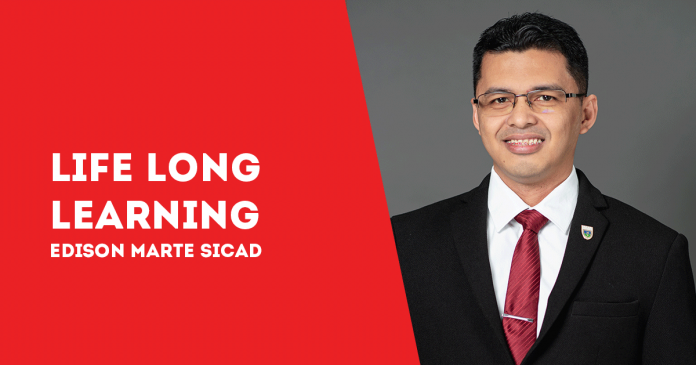
BY EDISON MARTE SICAD
“He captured strange and distant worlds in greater detail than ever before. They were beautiful. Magnificent. Full of awe and wonder. But beneath their sublime surfaces, there was nothing. No love or hate. No light or dark. He could only see what was not there; and missed what was right in front of him.” – Ad Astra
IN THE 2019 sci-fi/adventure movie Ad Astra, a father dedicated his life searching for other lifeforms and trying to communicate with them. His son (also an astronaut) tried to save him — to bring him back home — as well as save the world. But his father was convinced that these neighbors of ours are just out there as seen from the “contours and structures presumed they have left behind.” And his father, working all alone for years, would be very much happy if his son could lend him a hand. For only his son fully understood the value and impact of the mission for all of humanity.
The so-called legacy — the great contribution of the father and son — became the tragic end of the family. Tragic because the very identity and social standing of the family — of what they are known for as a family — caused the inner conflict and misunderstanding. The importance of the togetherness of the family was relegated to the pursuit of grand goals and great achievements.
The question now is, to what extent should children pay their “family debts”? When does showing care and concern become meddling into someone else’s life? Where do we draw the line between being independent and being ungrateful?
For the past six months, I’ve been learning the ropes as a legal researcher. This is the kind of learning that I have been avoiding actually. But then, I need to get out of my comfort zone. I need this kind of pressure — or stress even: to be overwhelmed and find a way how to prioritize to get the best results; to learn how to deal with facts I don’t like; to not be carried away and be idealistic with the whole notion of justice and serving humanity.
Sometimes, I am asked to share my thoughts (legal opinion) about other people’s problems. I learned when to speak. I learned when to keep my mouth shut. The more I get “involved” into other people’s predicament, the more I have understood how difficult it is to live with people — especially with people close to us.
I get it. Relationships could be fickle but also wonderful; messy but mysterious and surprising in a good way; helpful, obviously, but could as well be harmful or destructive. We can throw in practically a thesaurus into this human connection with all its synonyms and antonyms. Notwithstanding the ambivalence, relationships are important. It’s what makes us human.
However, it could also be an aggravating or a mitigating circumstance. An act becomes more or less punishable depending on the relation of the perpetrator to the victim. And so far, reality does bite:
family members fighting about inheritance; siblings slicing their businesses to circumvent the law; children continuing the legal battle of their parents; and other forms of deceits the plot twists are worthy of a TV drama series.
It is the relationship that causes the strain. The people the stumbling block and barrier. With the heart overpowered by malice and hate, the eyes only see revenge, envy, and bank accounts. People do get destroyed by relationships.
Don’t get me wrong. There are those who still value the family. And some people may have just misunderstood that the legality of an act does not always go together with the morality of such act. Of course, we do need legal procedures to thresh out the issues and arrive at a conclusion that gives justice to the parties concerned.
But then again, when it comes to relationships — to the value of the family — more than the legal procedures, it is the heart of understanding that matters. That although amassing wealth, building prestige, and having social significance have their merits, it also matters to seek spiritual guidance: for families are not only meant to be powerful, they are also meant to be prayerful.
Maybe in our search for meaning and value, we have inadvertently attached ourselves to what we have, taking for granted the people who have been supporting and loving us for who we are./PN







